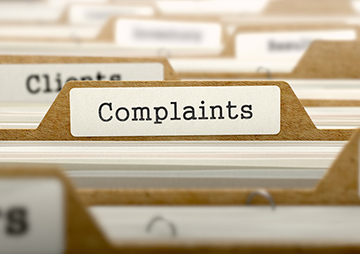

THE BASICS
The purpose of a bankruptcy is to provide relief from debt where it would be otherwise impossible. The government has a set of rules each bankrupt must follow and in return they provide protection from that person’s creditors. Each bankruptcy is administrated by a Licensed Insolvency Trustee who meets with every individual and assesses their situation before they choose to file.
THE ROLE OF A LICENSED INSOLVENCY TRUSTEE
Once you decide to file for bankruptcy a Licensed Insolvency Trustee, formerly referred to simply as a bankruptcy trustee, assesses your situation, completes the paperwork with you, and files it with the Federal Government. Your creditors are then notified of your filing and are to deal only with the trustee from then on.
For secure debts such as car loans and mortgages, you can continue to deal with those creditors under the original agreement you made. If you want to end a secured debt and have that creditors’ loss included in the bankruptcy, you must turn the secured asset over to the trustee when you become bankrupt.
Bankruptcy is trading your assets (what you own) and in return your debts (most) are forgiven. You don’t have to give up simple clothing, furniture, a basic vehicle, pensions, and most Life Insurance or RRSP’s.
THE BANKRUPTCY PROCESS
The payments in a bankruptcy consist of the licensed insolvency trustee’s basic fee and any requirements to pay surplus income as required by the federal government income rules. If you are receiving GST cheques every 3 months, these will be sent to the trustee until the trustee is discharged. Also, the licensed insolvency trustee must file your taxes for the year you started bankruptcy. Any refunds for that year or any past years will be sent to the trustee; however income tax debts up to the bankruptcy date are wiped out.

Court actions over debts and garnishments (except for support payments) are stopped. Most assets, other than basic clothing, pension, furniture, or basic vehicle must be turned over to the licensed insolvency trustee. The trustee obtains a fair value for your assets and divides the money amongst your creditors. As the creditors just expect a fair amount for your assets, you can often purchase your items back from the trustee (eg a second car or home equity) if you can afford to.
Once bankrupt, you must perform your duties which include giving the licensed insolvency trustee all of your credit cards, attend meetings if the creditors want them, attending an examination in which the government asks basic questions on your situation (meetings are rare and exams happen occasionally), pay any Surplus Incomeas required by the Federal Government, and co-operate with the trustee in all other duties such as completing monthly budgets. Two counselling sessions on money management must also be attended to obtain your discharge.
For someone bankrupt the first time, you are normally out of bankruptcy in 9 months, this is called your discharge. If the Income Rules apply, your discharge will take up to 21 months. A second bankruptcy requires you not be discharged for 24 months, 36 months if there is any surplus income. If you have filed more than two (2) past insolvencies, you are not eligible for an automatic discharge and can expect to be bankrupt for at least 36 months.
While bankrupt, if you receive a windfall (a lottery win, inheritance, etc) the licensed insolvency trustee must use these funds to pay off your creditors. If you receive such a windfall after your discharge, as the debts have been wiped out, you will get to keep it all.
If 1) this is your third bankruptcy, 2) do not do what is required by the trustee or 3) a interested party has an objection, then your file will be sent to the court for the discharge to be decided (instead of the automatic 9 to 36 month processes noted above). The courts may decide that you should pay additional funds to the trustee for your creditors, that your discharge be delayed for a period, or both. However, most 1st time bankrupts are discharged automatically after 9-21 months.
Not all debts are erased in a bankruptcy. You must still pay alimony and support, court fines (parking/ traffic tickets are included in this), debts incurred by fraud, and some student loans depending on when you last studied in school. Your trustee can review this full list with you. Also, if you do not obtain your discharge and the trustee becomes discharged from your file, the creditor’s rights are revived, and they can then pursue you again for the debts listed in your bankruptcy.















